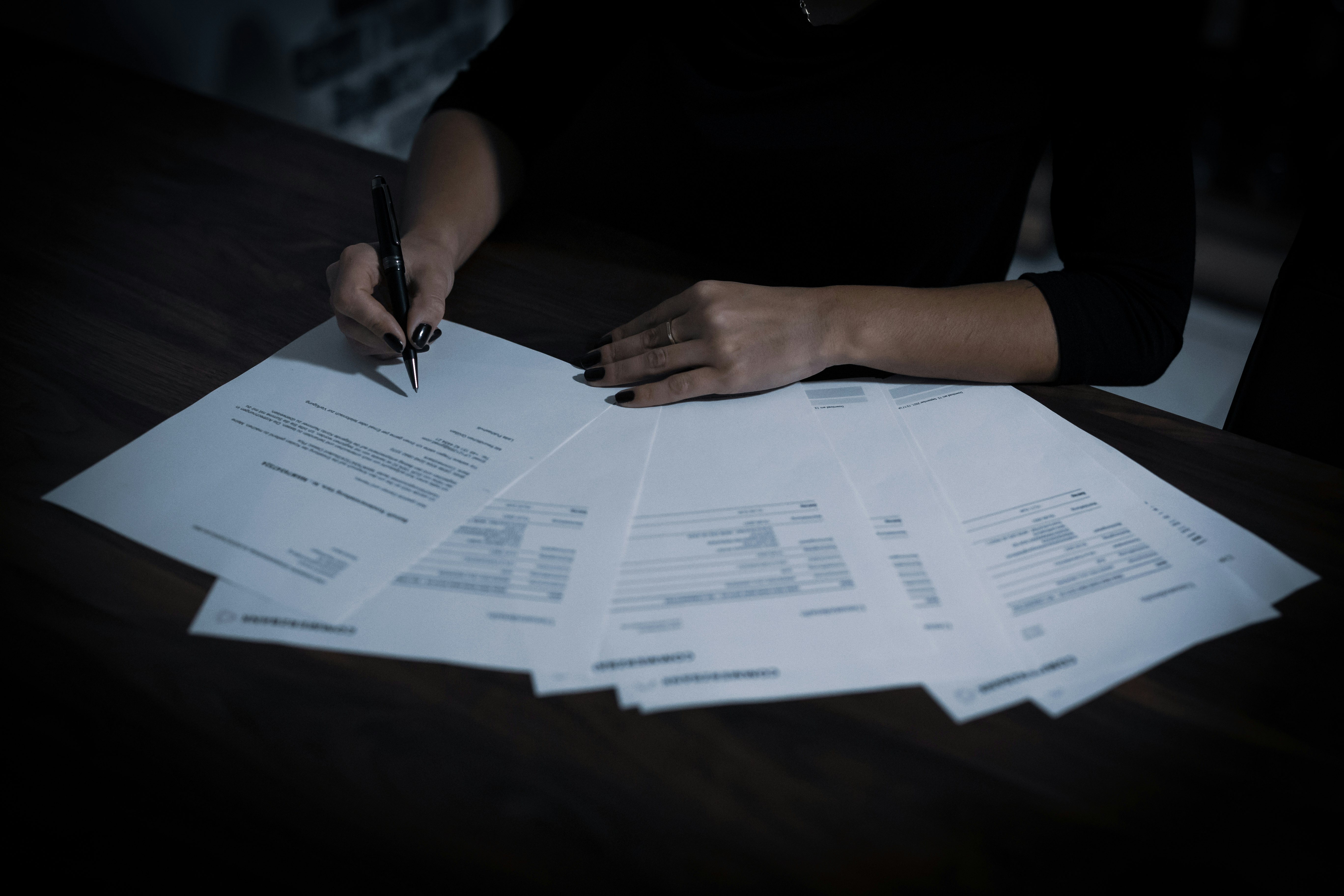
Kudos has partnered with CardRatings and Red Ventures for our coverage of credit card products. Kudos, CardRatings, and Red Ventures may receive a commission from card issuers. Kudos may receive commission from card issuers. Some of the card offers that appear on Kudos are from advertisers and may impact how and where card products appear on the site. Kudos tries to include as many card companies and offers as we are aware of, including offers from issuers that don't pay us, but we may not cover all card companies or all available card offers. You don't have to use our links, but we're grateful when you do!
Does Having a Criminal Record Affect Your Credit Score?
July 1, 2025


Quick Answers
A criminal record does not directly influence your credit score, as criminal history is not tracked by the major credit bureaus and does not appear on your credit reports.
However, financial obligations resulting from a conviction, such as court-ordered fines or restitution, can indirectly harm your credit if they go unpaid and are sent to collections.
Furthermore, employment difficulties stemming from a criminal record can impede your ability to meet financial commitments, potentially leading to late payments and a lower credit score.
What Does It Mean to Have a Criminal Record?
A criminal record is an official document detailing an individual's history with the criminal justice system. This file includes information on arrests, formal charges, convictions, and any resulting sentences. It serves as a comprehensive, formal account of a person's documented interactions with law enforcement and the courts.
While a criminal record is separate from your financial history, the consequences of a conviction can intersect with your credit. Court-ordered financial obligations, such as fines or restitution, are common components of sentencing. If these debts go unpaid and are sent to a collection agency, they can then be reported to credit bureaus and subsequently affect your credit score.
How Having a Criminal Record Can Affect Your Credit Score
While a criminal record itself doesn't appear on your credit report or directly lower your score, the financial consequences that often follow can certainly lead to significant credit damage.
- Legal and Financial Obligations: A conviction often comes with court-ordered fines, restitution, and hefty legal fees. These immediate, and often large, financial obligations can strain your budget from the outset.
- Employment Challenges: A criminal record can be a significant barrier to finding or maintaining employment. Reduced or lost income makes it difficult to keep up with existing financial commitments like loan payments.
- Missed Payments and Defaults: The combination of new debts and reduced income can lead to missed payments on credit cards, loans, and other bills. Lenders report these delinquencies to credit bureaus.
- Negative Credit Reporting: As missed payments accumulate, they become negative marks on your credit report. Accounts may be sent to collections, further damaging your credit history and lowering your score significantly.
How Much Will Having a Criminal Record Affect Your Credit Score?
While a criminal record does not directly appear on your credit report or factor into your score, its consequences can have a significant indirect effect. Here are key things to consider about the financial impact.
- Indirect Financial Strain. A criminal record often comes with hefty fines and legal fees. These costs can strain your budget, making it difficult to pay existing bills on time and potentially damaging your credit.
- Employment and Income. Securing a job can be challenging with a criminal record, leading to income instability. This makes it harder to manage debt and meet financial obligations, which can negatively affect your credit score.
- Loan and Housing Applications. Lenders and landlords may conduct background checks alongside credit inquiries. A criminal history could result in a denied application for a loan or housing, regardless of your creditworthiness.
How You Can Avoid Having a Criminal Record Affect Your Credit Score
Pay Court-Ordered Debts Promptly
While a criminal record itself doesn't appear on credit reports, associated financial obligations do. Unpaid fines, restitution, or court fees can be sent to collection agencies. These collection accounts will negatively impact your credit score, so timely payment is essential to prevent this.
Manage Debts During Incarceration
Incarceration can disrupt your ability to manage existing financial responsibilities. This often leads to missed payments on credit cards and loans, causing defaults that severely damage your credit history. It's crucial to arrange for payments if possible before serving time to mitigate this.
Address Employment Challenges
A criminal record can be a significant barrier to securing stable employment. This lack of income can indirectly harm your credit score by making it difficult to pay bills on time. Proactively seeking employment assistance can help maintain financial stability and protect your credit.
Choose the Right Card to Having a Criminal Record
Improving your credit score is a crucial part of managing your financial life, and thankfully, it's always possible to make positive changes. Whether you're looking to boost your FICO® score or VantageScore, there are proven methods to improve your creditworthiness and achieve a healthier credit profile.
- Monitor your credit reports. Regularly check your reports from Experian, TransUnion, and Equifax to identify and dispute inaccuracies, detect identity theft, and track your progress.
- Establish automatic bill payments. Your payment history is the most significant factor in your score, so setting up automatic payments ensures you never miss a due date.
- Reduce your credit utilization ratio. Aim to keep your credit usage below 30% of your total available credit to show lenders you aren't overextended.
- Become an authorized user. Being added to someone's credit card who has a strong payment history can help boost your own score, as long as their account reports to the major bureaus.
- Diversify your credit mix. Lenders like to see that you can responsibly manage different types of credit, such as revolving credit like credit cards and installment loans like auto or personal loans.
The Bottom Line
While a criminal record itself won't lower your credit score, associated financial obligations such as court fees or restitution can negatively impact your credit if they go unpaid.
Frequently Asked Questions
Does having a criminal record lower my credit score?
No, your criminal history is not included in your credit report and does not directly impact your credit score. Credit bureaus do not track this information.
Can unpaid court fines appear on my credit report?
Yes. If court-ordered debts like fines or restitution go unpaid, they can be sent to a collection agency, which may then report it to credit bureaus.
How does a criminal record indirectly affect my finances?
It can create barriers to employment and housing, making it harder to earn a stable income and pay bills on time, which indirectly impacts your credit health.

Supercharge Your Credit Cards
Experience smarter spending with Kudos and unlock more from your credit cards. Earn $20.00 when you sign up for Kudos with "GET20" and make an eligible Kudos Boost purchase.
Editorial Disclosure: Opinions expressed here are those of Kudos alone, not those of any bank, credit card issuer, hotel, airline, or other entity. This content has not been reviewed, approved or otherwise endorsed by any of the entities included within the post.




















.webp)
.webp)
.webp)
.webp)
















